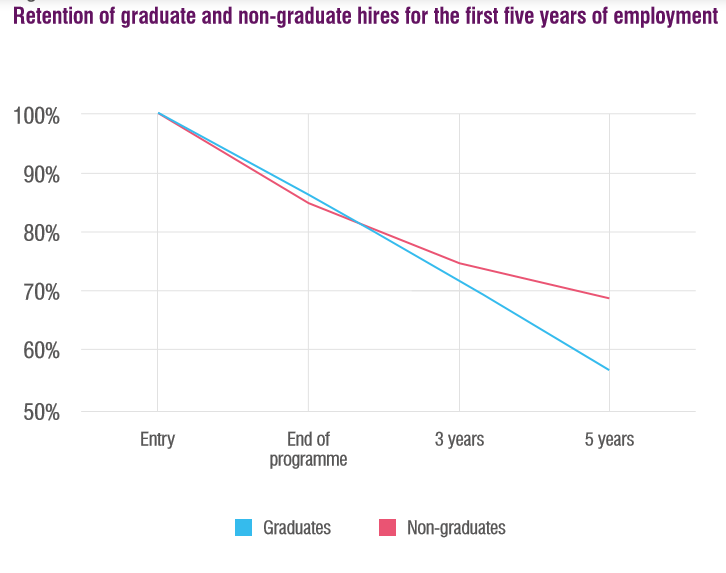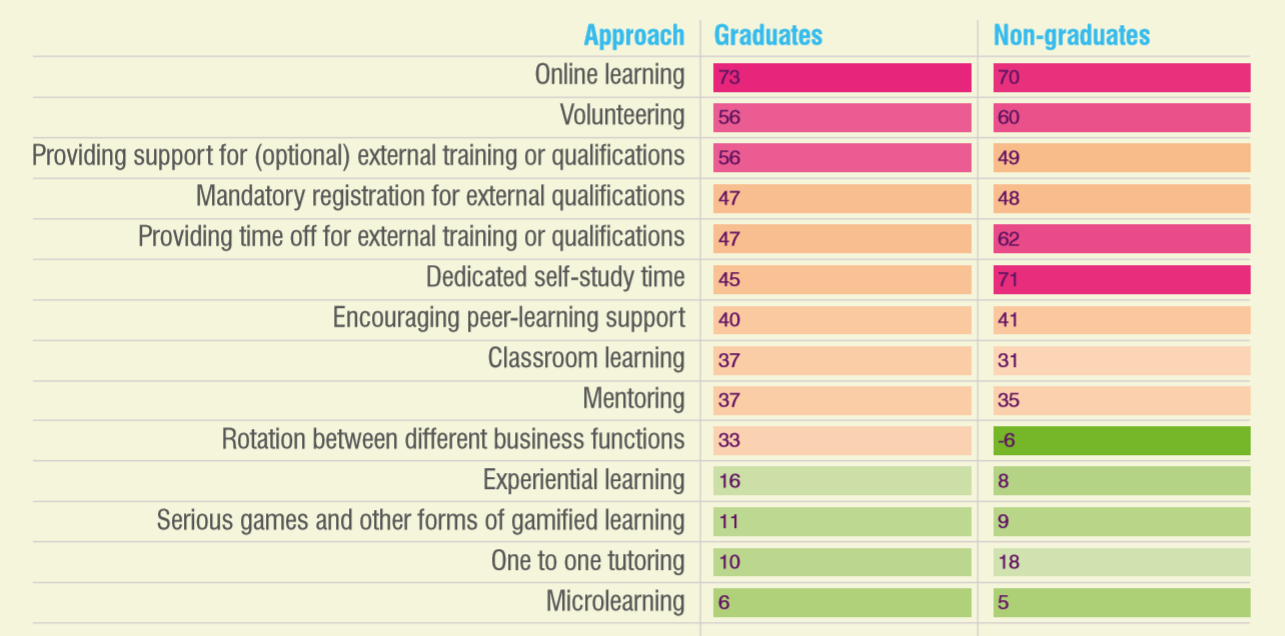Could you have fallen into the habit of delivering a development programme that is cheap and easy rather than what is most effective? Tristram Hooley, ISE’s Chief Research Officer, delves into our Student Development Survey 2020.
You’ve probably heard that the world of work is moving more rapidly than ever. Young people are supposed to be changing jobs more often than every before. But, new data from ISE Student Development Survey 2020 suggests that entry-level hires remain pretty loyal.
The figure below shows the level of retention for both graduate and non-graduate (school-leavers and apprentices) hires.

Employers told us that 85% of graduates and 86% of non-graduates complete their initial graduate development programme or apprenticeship.
After three years 72% of graduate and 75% of non-graduates are still working for the same firm. Even five years after they are hired, the majority of entry-level hires are still working for the same employer (57% of graduates and 69% of non-graduates). What is more, when we looked back to historic data, this pattern has been broadly stable for the last ten years or even longer.
This should be great news for business. Most firms are keen to retain hires beyond the length of their initial training and development programme. While firms do not want to retain every hire forever as some degree of turnover is healthy, relatively high levels of staff retention are often seen to be indicative of job satisfaction and employee engagement. This is particularly important with entry-level hires, where employers are making substantial investments in the development of staff and hope to retain them until this initial outlay is recovered
High retention should mean that firms are holding onto good quality staff and watching them develop and progress. In many cases they are certainly paying well with the average firm increasing graduate pay by £11,000 over the first three years and non-graduate pay by £8,500.
Are development programmes working?
Firms report that they are investing in enty-level hires with the typical firm reporting that they have six staff in their development team and that they spend £5,739 on every hire. But, a big question mark remains about the way in which firms are organising their development programmes.
We asked what approaches to development firms were using and what approaches they rated as most impactful. Looking at the differences in the answers that they gave to these two questions. The figure below shows the proportion of employers who are using development approaches that they don’t rate as being one of the most impactful approaches.

This suggests that there are some approaches to training and development that are widely used, but which have few enthusiasts.
These include online learning, the provision of work-based qualifications and dedicated self-study time. Volunteering also falls into this category, but its role as a training and development approach is usually secondary to its wider purpose as part of corporate social responsibility.
There may be value in firms considering whether they should be giving greater priority to the delivery of the most impactful approaches.
Final thoughts
ISE members continue to report that they are providing good quality jobs with strong development opportunities. Perhaps because of this, most entry-level hires are inclined to stay with the firm for at least five years. This should give employers the opportunity to develop the skills, attributes and capabilities of these entry-level hires into what they need. However, there are some questions about whether employers are really delivering the best learning and development, or whether some have fallen into habit of delivering what is cheap and easy rather than what is most effective.


0 Comments
Trackbacks/Pingbacks